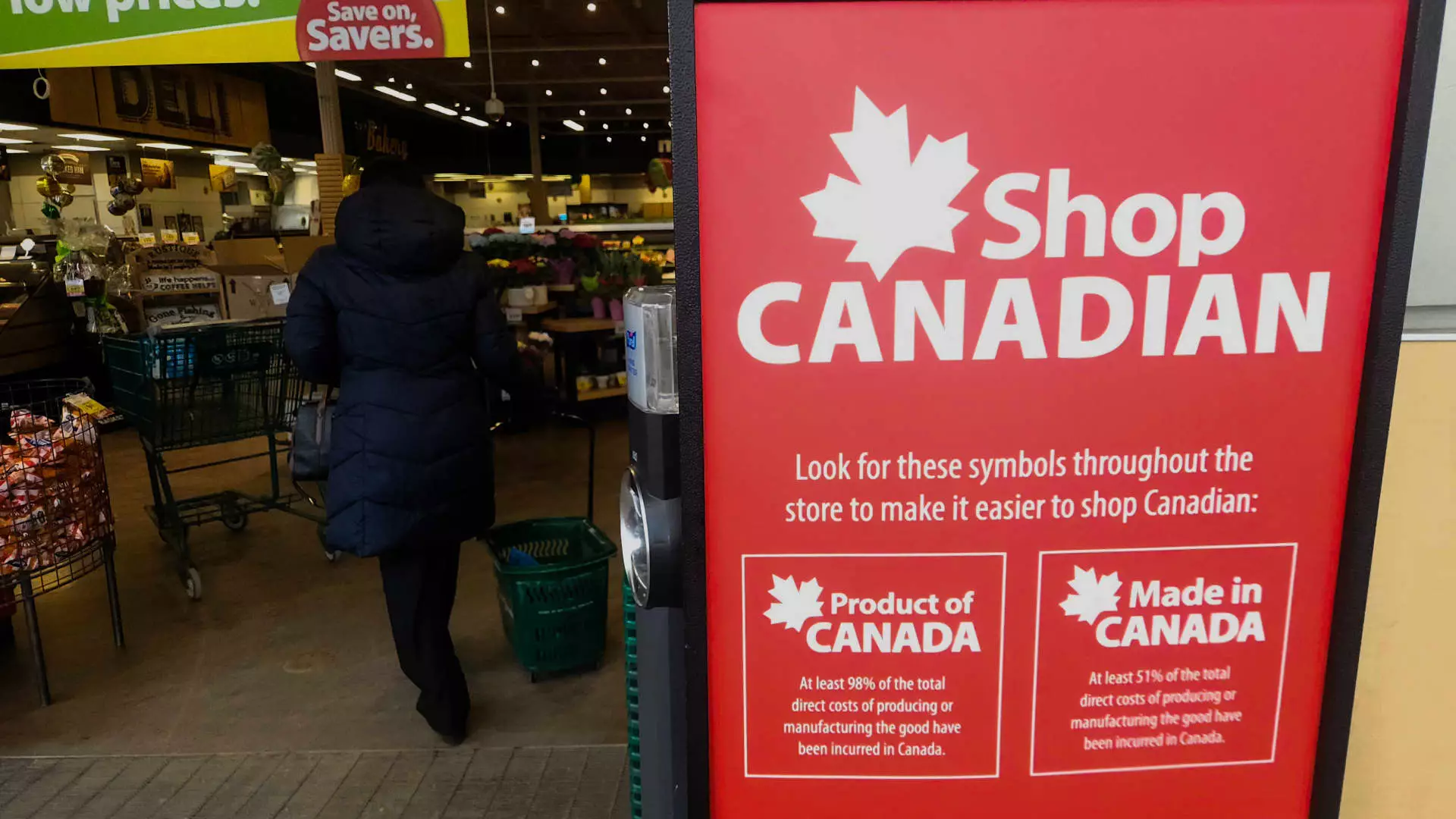The recent imposition of tariffs by the Trump administration marks a significant shift in U.S.-Canada relations, one that has left many small businesses on both sides of the border feeling betrayed. While the intent behind these tariffs, aimed at rebalancing international trade and reviving American manufacturing, is politically couched in national interest, the collateral damage is both immeasurable and detrimental. For decades, the economic relationship between the United States and Canada has been characterized by deep integration; in 2024, trade totaled an astounding $762.1 billion. Suddenly, the bond that was once a model for international trade is being tested—and with it, the mutual trust that both nations have built over the years.
The Personal Impact of Trade Wars
Tariffs are rarely just policy decisions; they are tangible impacts felt by everyday businesses and consumers. Canadian small businesses now find themselves facing unexpected costs and pressures. For instance, Balzac’s Coffee Roasters, a beloved café chain, epitomizes the sentiment by creatively renaming a drink to resonate with national pride in response to the tariffs. It is not merely about economics; this dynamic represents a deeper emotional response to what feels like an abandonment of the longstanding partnership.
The ramifications extend beyond branding. Corinne Pohlmann, executive vice president of advocacy at the Canadian Federation of Independent Business (CFIB), points out that half of their members are directly involved in cross-border trading. These businesses are not just losing profits; they are experiencing emotional distress. The phrase “it felt like a betrayal” encapsulates a sentiment becoming alarmingly common among many Canadian entrepreneurs. Trust, once taken for granted, is now on shaky ground.
Retaliatory Measures: Fighting Back
In response to the tariffs, Canada has introduced retaliatory measures, which have only further exacerbated the situation. The Liquor Control Board of Ontario’s decision to halt imports of U.S. products demonstrates how personal and national pride can manifest in direct economic consequences. This brand of protectionism goes beyond mere economics; it is a statement of solidarity—a pushback against what many perceive as an assault on their economic sovereignty.
When one considers the products affected by these policies, the implications become even more concerning. U.S. brands are not merely labels on a shelf. They represent longstanding commercial relationships, shared experiences, and mutual trust built over decades. Now, products like California wines and Tito’s Vodka are vanishing from LCBO shelves, leading many to ponder whether such divisive actions will leave enduring scars.
Shifting Alliances and Trust Deficit
Trust losses are not easy to quantify, yet they represent an insidious consequence of the current trade war. In the eyes of many Canadian entrepreneurs, the U.S. has veered into the territory of being an unreliable trading partner. CFIB’s surveys reflect this sentiment, with over half agreeing that the relationship has become increasingly tenuous. Entrepreneurs are now faced with difficult choices—should they stick with their U.S. partners or look for alternatives? Some are actively renegotiating contracts, a process fraught with anxiety and uncertainty.
Furthermore, the idea that businesses can simply pivot back to their former trading relationships, even if tariffs ease, is overly optimistic. The fragile web of interdependence that once defined U.S.-Canada trade has been bombarded by the current political climate, leading to a pervasive skepticism about the future.
Soft Power Erosion: An American Concern
The implications of tariffs extend far beyond the immediate economic impact; they also influence the soft power of the United States on the global stage. Former Secretary of State Antony Blinken identified a significant fear: the erosion of U.S. influence, not just with Canada but globally. As neighboring countries weigh their allegiances, the long-term repercussions of lost trust could prove catastrophic. There’s a growing concern that ceding influence to emerging powers, such as China, could seal the fate of the U.S. as a leader in global commerce.
The current trajectory raises the question—can trust be rebuilt? Or has it already been eroded beyond repair? While American businesses may be itching for tariff reductions, Canadian entrepreneurs are left navigating a landscape fraught with doubt and hesitation. As history has shown, it often takes years to rebuild trust after it has been damaged, especially in matters of international trade.
Ultimately, the tariffs may represent not just a bout of economic nationalism, but a more profound crisis of faith between two nations linked by geography, commerce, and culture. As the dust settles on this fiscal skirmish, it remains to be seen whether a reconciliation can take place—or if the wounds of distrust will persist for generations to come.

